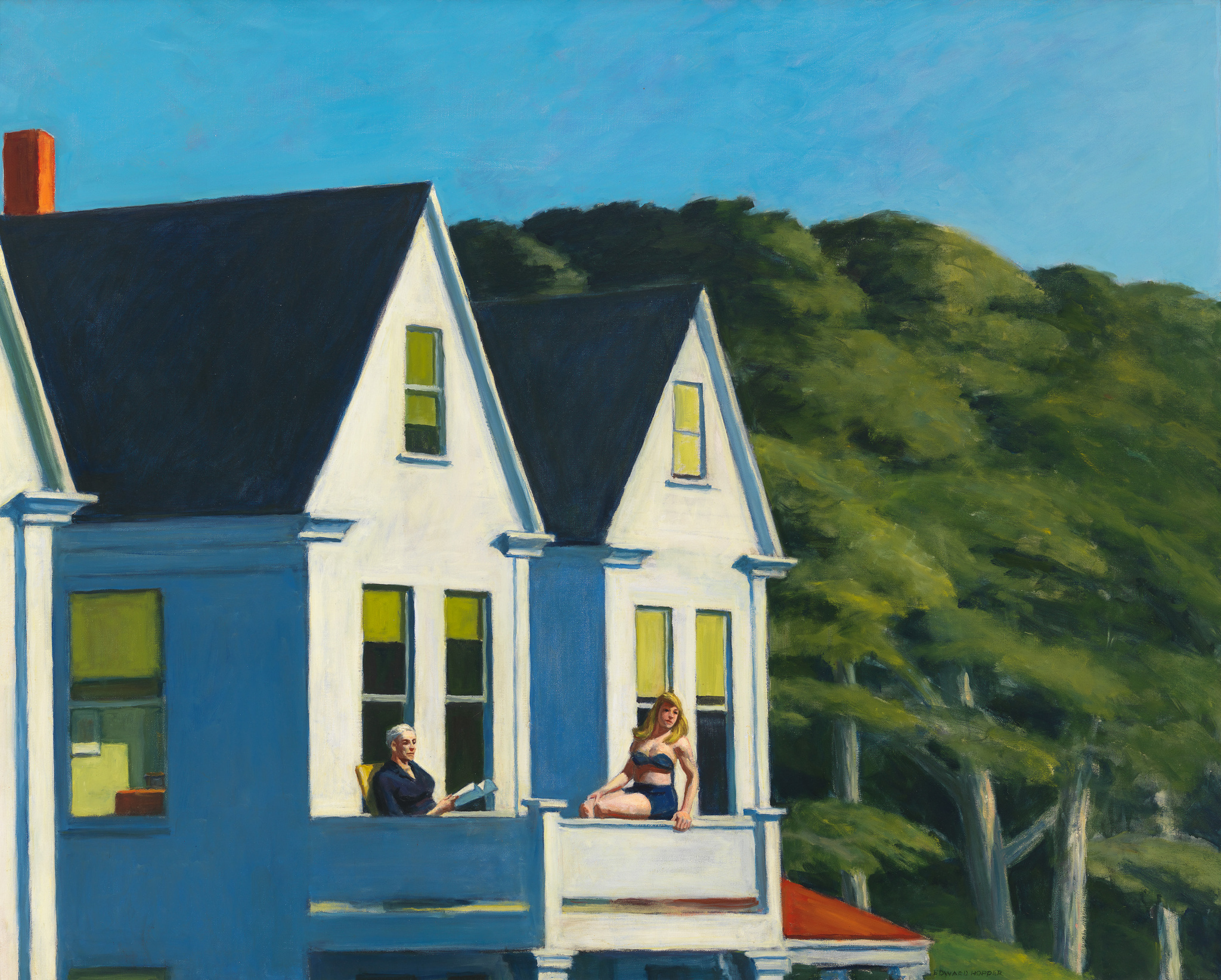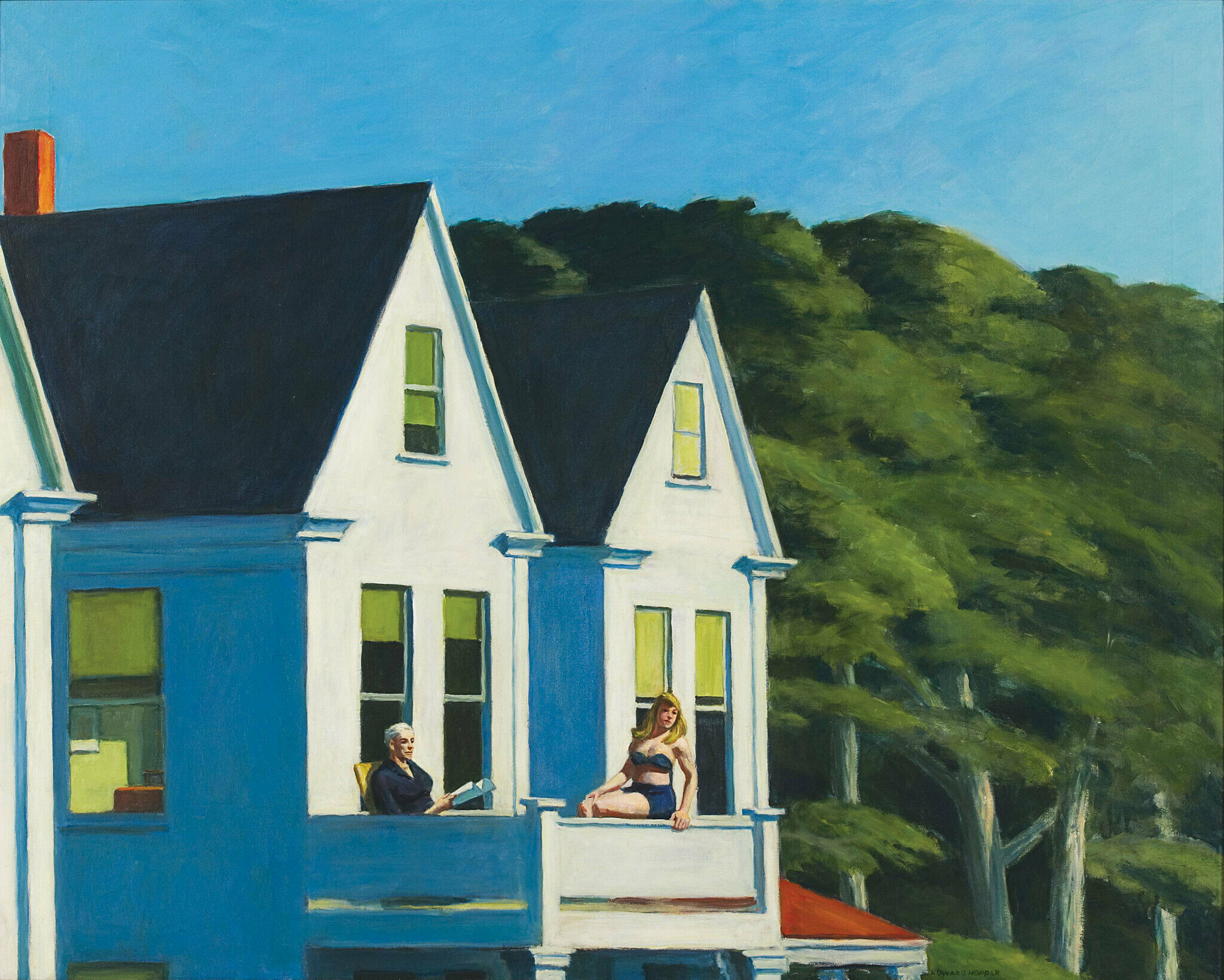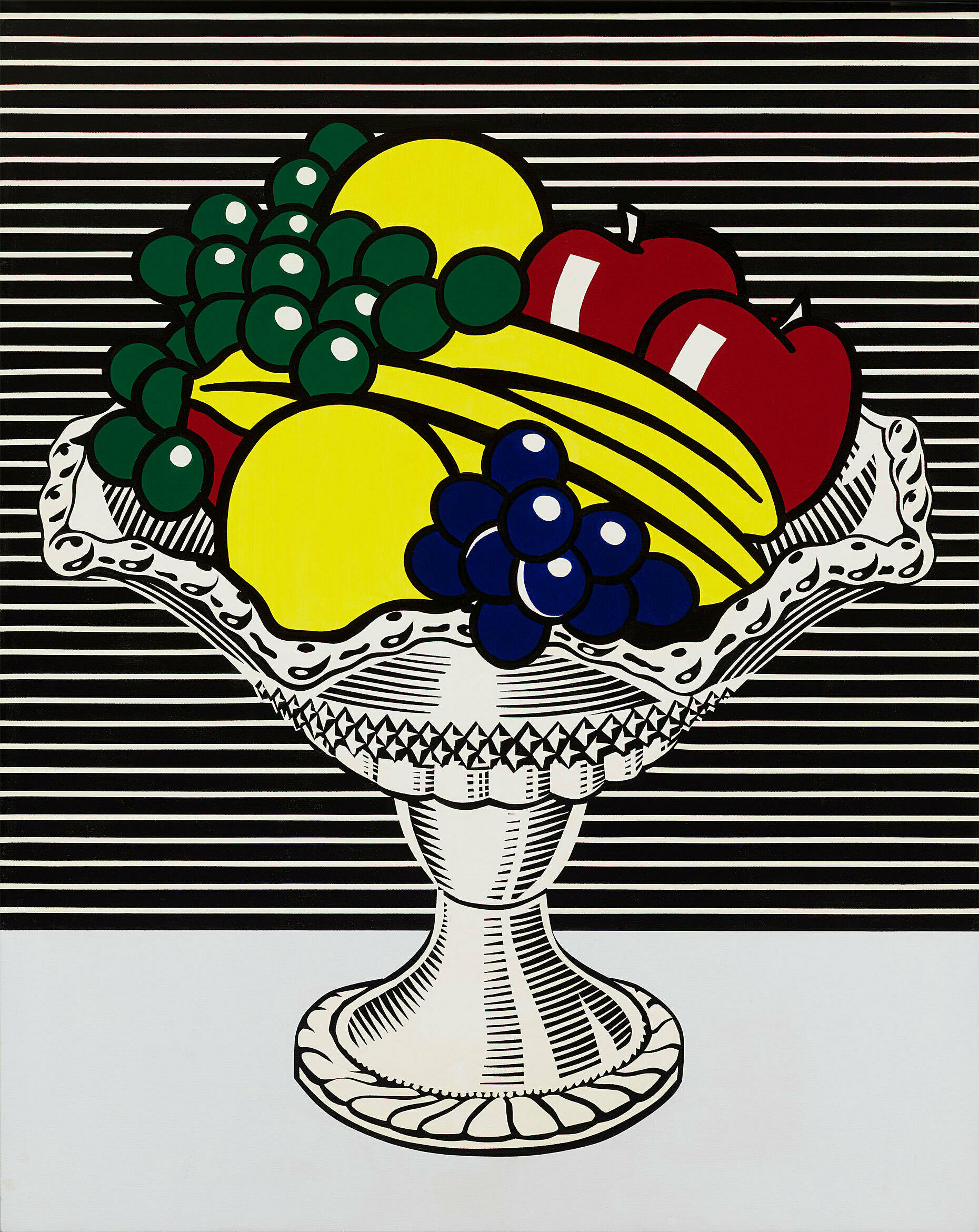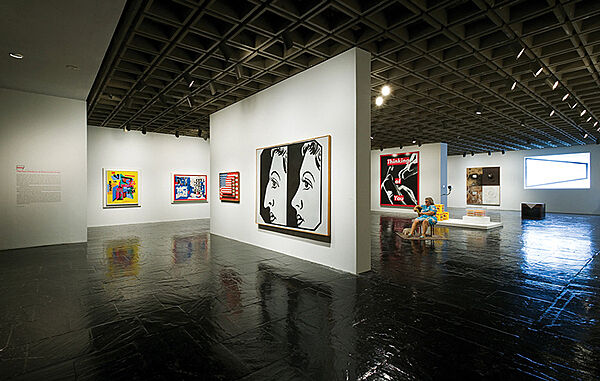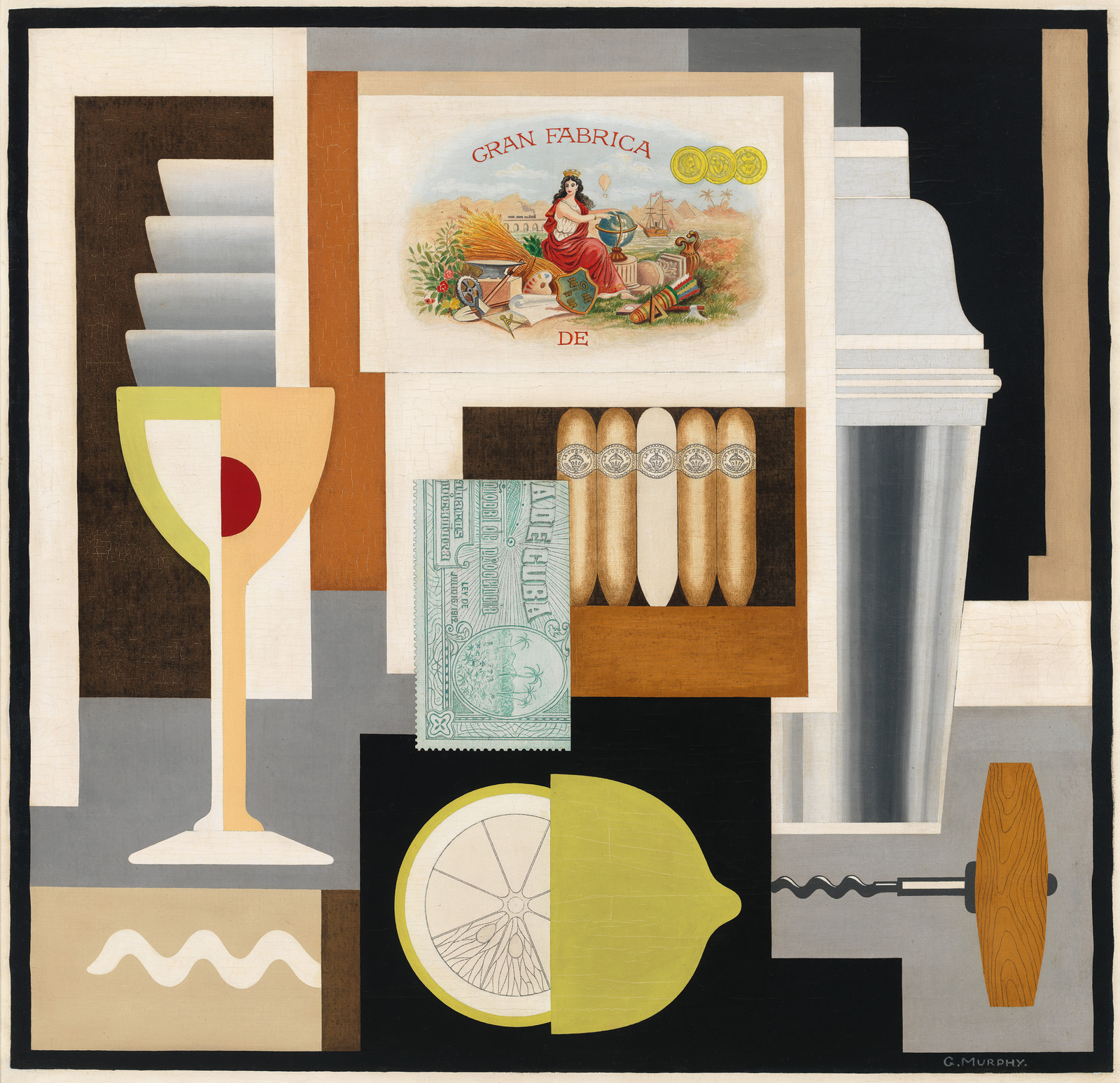Brian O’Doherty: My Name is Brian O’Doherty and I’m talking about Edward Hopper, who was a friend.
Adam Weinberg: Artist and art critic O’Doherty is a longtime admirer of Edward Hopper’s work and was a close friend of the artist.
Brian O’Doherty: Well, Second Story Sunlight is just one of Hopper’s late masterpieces. He was 76 when he did it, done I suspect more from the imagination than anything else.
And it contains pretty well all of Hopper’s concerns—the mysterious wood to the right, the gable ends of the houses like twins there, the same as the two people below, the windows, the blinds, and the beginning of a house again, another gable on the left margin . . . the little triangle of red on the lower right, which is answered by the chimney, the red chimney, in the top left. The perfect blue sky.
There is a certain atmosphere and mood. And I think mood is what he was after. You can talk about the restlessness of the young, and the calm introspection of the reading lady. Their relationship, well who knows?
Do you see these two gables, these two great triangles, each containing its window? Look at the two windows there. They have a personality and a force that you might say is even more psychologically fascinating and dense than the characters below.
And I think continually you are asking about Hopper’s mood, what is that about? And what it’s about is very mysterious, very uncanny, very strange. And I asked him once, I said, “Well, what are you after? What are you after in this?” —these stupid questions that artists put up with. So he tolerated this for a while and then he finally said, in his heavy voice, “I’m after me.” So you could look upon this work as a vast acreage, populated by the author, who has disappeared into these works. And we track down the missing Edward Hopper who now exists in a variety of potentials, and building, and figure, and wood, and light.

